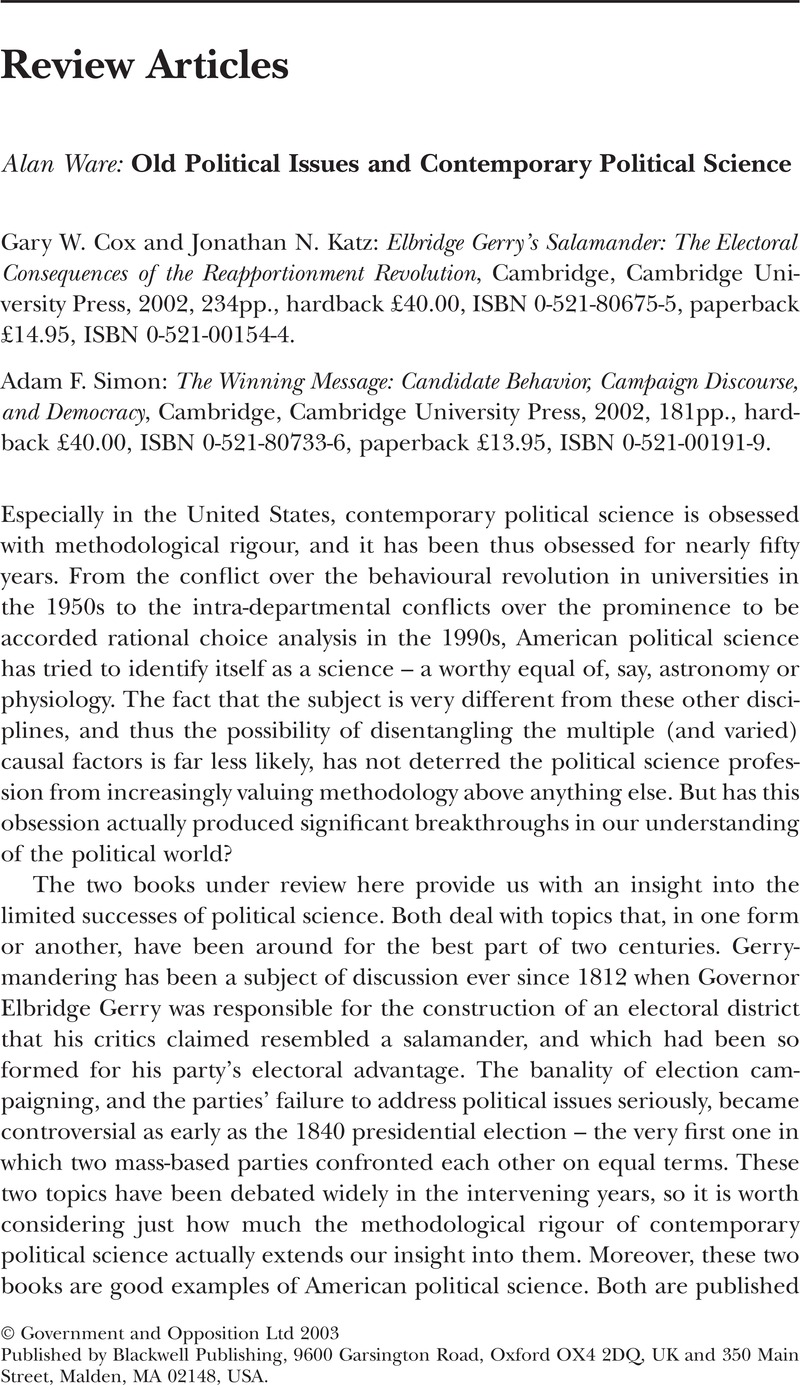No CrossRef data available.
Published online by Cambridge University Press: 28 March 2014

1 The significance of this second form of professionalization for congressional recruitment is much less than the professionalization of the legislatures. Far fewer elected executives run for Congress than do state legislators, partly because there are fewer of them, and partly because, as serving legislators, members of state assemblies will already have an organizational base in at least part of the congressional district that they hope to represent. In the case of state governors, most would aspire to run for the Senate rather than the House, although in some small states a House seat might not constitute a ‘demotion’.
2 Mary Ellen Leary, Phantom Politics: Campaigning in California, Washington, DC, Public Affairs Press, 1977.
3 Benjamin I. Page, ‘The Theory of Political Ambiguity’, American Political Science Review, LXX (1976), pp. 742–52; Alan Ware, The Logic of Party Democracy, London, Macmillan, 1979, chs 7 and 8.